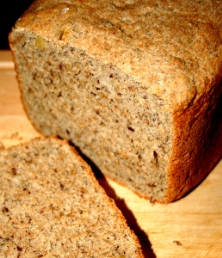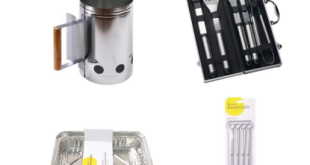With the Christmas frenzy of present-giving now over, new research reveals that the bread maker is Britain’s least-used gift appliance.

According to Mintel, as many as 36% of all consumers who have received a bread maker as a gift admit they hardly ever use the appliance. And sandwich toasters and coffee makers/percolators (28% each) complete the top three most redundant appliance gifts.
“While a popular gift idea, this latest research shows that an enormous number of appliances are barely used,” says Richard Caines, senior retail analyst at Mintel. “The risk of not checking that a person actually wants a particular item is clear from the number of appliances that are owned but hardly ever used that were received as gifts.”
Overall, while the household goods sector was hit hard by the economic downturn and recession, small kitchen appliances have performed well, says Mintel. Over the last five years, the value of the market has increased 11%, up from £516m in 2005 to an estimated £581m in 2010.
During 2005 households acquired almost 22m new appliances, with the total set to reach around 2.6m by the end of 2010.
“Small kitchen appliances have benefited from being more affordable than big-ticket household items but the sector has not been completely immune from the effects of the recession,” Caines continues. “The end of 2008 and the first half of 2009 was the most difficult trading period, but value sales picked up strongly towards the end of 2009 and this trend continued into 2010.”
According to Mintel, kettles have the largest share of the market, accounting for £152m-worth of sales, the market having increased 14% between 2005 and 2010. Food preparation appliances account for the second largest share: valued at £79m, sales of these appliances are set to increase 11% between 2005 and 2010.
Toasters make up the third largest sector, currently valued at £78m, with sales increasing 28% between 2005 and 2010.
Meanwhile, once the darling of the nation’s dieters, sales of health grills slumped 17% between 2005 and 2009. Valued at £53m back in 2005, sales were down to just £44m in 2010. However, volume sales have seen less of a decline, falling back just 3% in the last five years.
Caines says that consumers have now turned to other products for preparing healthy meals, such as electric steamers, slow cookers or multi-cookers.
“Stronger interest in cooking and baking, a desire to eat more healthily, as well as more meals, drinks and snacks being taken or prepared at home to save money, have all helped drive demand for small kitchen appliances that make tasks in the kitchen easier, quicker and produce better results,” he concludes.
 Housewares Business-to-business magazine for housewares retailers and their suppliers
Housewares Business-to-business magazine for housewares retailers and their suppliers



